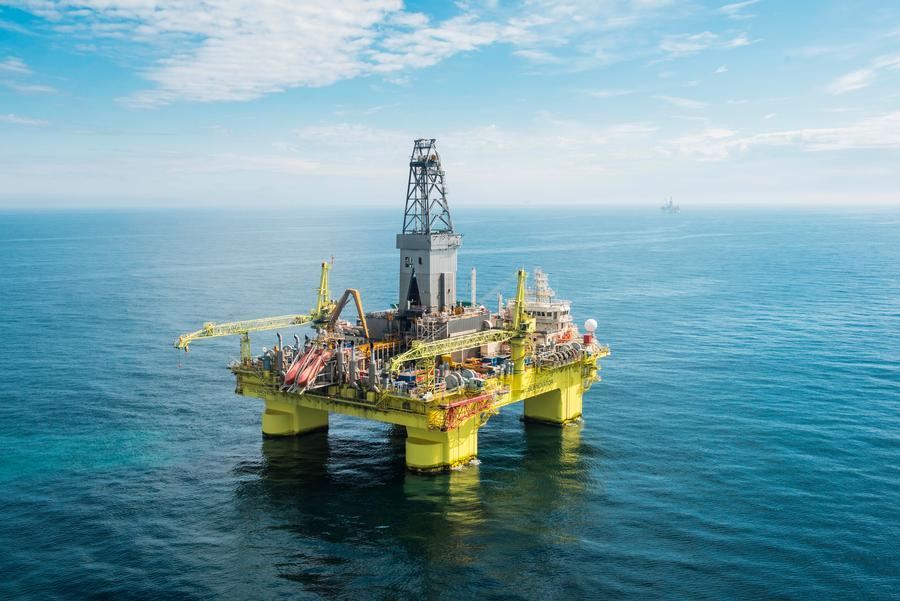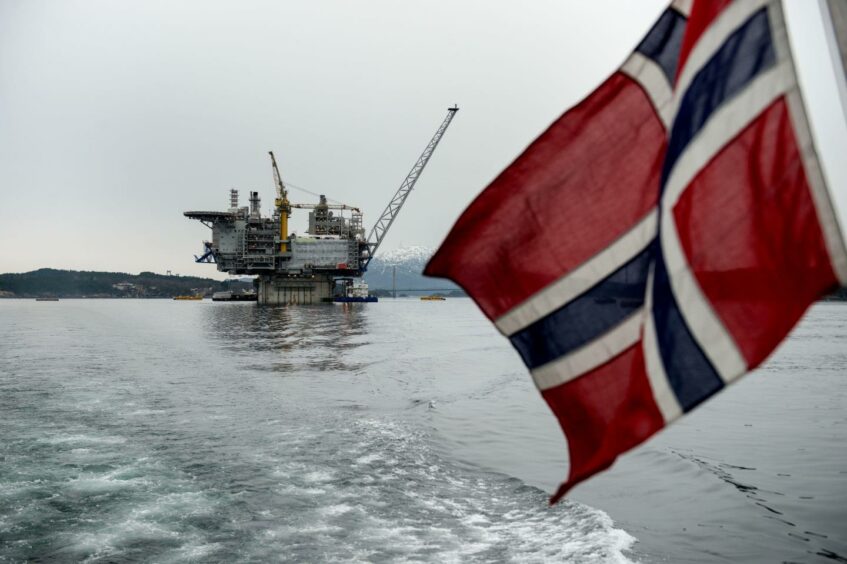
Serica Energy (AIM: SQZ) has made a final investment decision that “should have been straightforward” on its Belinda project, however, UK fiscal policy threw a spanner in the works.
Holding P50 reserves of about four million barrels of oil and five billion cubic feet of gas, Belinda is set to be developed as a tie-back to the Triton FPSO.
Serica revealed this week it had taken a final investment decision on Belinda and is waiting for NSTA approval of the field development plan.
As the 100% owner, making a final investment decision (FID) would have been easy to justify under normal conditions. That being said, the windfall tax, or energy profits levy, has created instability in the UK market, the firm outlined.
Serica had signed a deal for the COSL Innovator semisubmersible oil rig to drill four production wells in its Triton Area, with an option for a fifth well to be added. That’s what sealed the deal to sign off on Belinda.
The option for a fifth well was executed and Belinda came under the deal to drill in the Triton Area.
Serica’s chairman and interim chief executive, David Latin, told Energy Voice: “All in all, under the current tax regime, that package makes sense.
“If we’d been looking at doing Belinda in isolation by itself with a new kind of tax regime, there’s no way we would have done it.”
Serica speaks out against the EPL
Mr Latin spoke out against the UK’s windfall tax in the firm’s recent reporting.
He explained that the “high tax situation is ill-suited to a mature oil and gas basin such as the UK North Sea” as his firm’s earnings dropped due to falling commodity prices.
The UK’s windfall tax created a headline tax rate of 75% on the oil and gas sector, since this policy was introduced 90% of North Sea operators have cut spending.
Despite these headwinds, Serica Energy has committed £25 million on the newly sanctioned Belinda development.
Serica indicated to Energy Voice that the £25 million sum attached to Belinda this year will equate to “roughly one-quarter of a total spend” on the project.
This level of investment may be a one-off as the firm’s chief financial officer indicated that there were specific advantages that came with investing in Belinda that it may not see in other prospects.
Martin Copeland, Serica’s chief financial officer, explained: “When we looked at in the aggregate together with the four well programme, we’re already embarked on and the fact that it is a subsea tieback to a hub that gives us some advantages.
“So, I don’t think that should be taken as a kind of read-across for lots of future investment into projects in the North Sea.”
‘We might as well have the full-fat version of Norway’
Serica has previously indicated it is looking to carry out overseas takeovers to diversify its portfolio and it has reaffirmed these ambitions in this week’s reporting.
Serica laid out in its 2023 results that it could be turning to Norway which has a similar rate of tax on operators as the UK, however, it has investment incentives to make the country a more appealing place to spend money.
However, the firm is not rushing into a deal.
“We don’t want to do just any deal,” Mr Latin said, “we’re really patient and we will be, sometimes boringly so.”
Despite taking a slower approach to takeover bids, Serica has “the strongest, deepest, most skilled M&A team we’ve ever had,” the chairman added.
When questioned on if Serica was looking overseas to doge the windfall tax, Mr Latin answered: “Partly but not only, if you look at what we’ve done in the UK, we have managed to get assets that are in their mid to late life and squeezed more out of them.
“There will be opportunities to get more assets like that in the UK if the fiscal environment encourages it, but we want to be able to play that game elsewhere.”
To learn how to play its game across the water in Norway Serica says it will need to partner with firms that already have a foothold in the country. However, “that might mean buying them” Mr Latin said.
Martin Copeland justified his firm’s decision-making process as he explained: “People used to not like Norway because they thought it’s a high tax regime. Well, the UK’s a high tax regime now.”
He added: “The Labour Party is fond of saying they want to put a Norway tax in, but they’re not proposing a Norway tax. They’re proposing a worse than Norway tax.
“There’s an element to which you think, if we’re going to have Norway, we might as well have the full-fat version of Norway and actually go to Norway, right?”
In February, Labour set its plans for a “proper windfall tax,” which was followed by a backlash from the UK’s oil and gas industry.
The political party has said its manifesto will propose a hike to the tax rate from 75% to 78%, the same as Norway, and “end the loopholes in the levy that funnel billions back to the oil and gas giants”.
This comes as the UK looks ahead to a looming general election.
Recommended for you

 © Supplied by Serica Energy
© Supplied by Serica Energy © Supplied by Dana Petroleum
© Supplied by Dana Petroleum © Bloomberg
© Bloomberg © Supplied by Serica Energy
© Supplied by Serica Energy